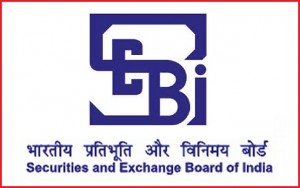In this blog post, Seuj Bikash, an Advocate, presently practicing in the Gauhati High Court and currently pursuing a Diploma in Entrepreneurship Administration and Business Laws from NUJS, Kolkata, describes the powers of the SEBI takeover panel.
Introduction
The Securities and Exchange Board of India (SEBI) was established by the Securities and Exchange Board of India Act,1992 (hereinafter referred to as the Act) with the objective to protect the interests of Investors in securities, to promote the development of, and to regulate the securities market and for matters connected therewith or incidental thereto.
One of the major power of the SEBI, prescribed by the Act [under Section 11(2) (b) of the Act] is to regulate the substantial acquisition of shares and take-over of companies. Section-30 of the Act empowers the Board to make regulations to carry out the purposes of the Act and in exercise of the power conferred under the said Section of the Act the SEBI made the “Securities and Exchange Board of India (Substantial Acquisition of Shares and Takeovers) Regulations, 1997” (hereinafter referred to as these Regulations).
Chapter III of these Regulations provides for provisions concerning the substantial acquisition of shares or voting rights in and acquisition of control of a listed company. However, whenever exemption from the operation of the said Chapter-III is sought, an application is to be made to the Board and such application is forwarded by the Board to a panel constituted by the Board, i.e., “the takeover panel,” to make recommendations to the Board on such Application after scrutinization.
Constitution of the SEBI Takeover Panel and Powers of the Panel
Regulation No. 4(1) of these Regulations has provided for the constitution of a panel consisting of a majority of independent persons from within the categories mentioned in sub-section(5) of section 4 of the Act. These persons, also including the Chairman of the Board, shall be persons of ability, integrity and standing who have shown capacity in dealing with problems relating to securities market or have special knowledge or experience in law, finance, economics, accountancy, administration, or in any other discipline which, in opinion of the Central Government, shall be useful to the Board.
Under the Act, an acquirer means any person who, directly or indirectly acquires or agrees to acquire shares or voting rights in the target company, or acquires or agrees to acquire control over the target company, either by himself or with any person acting in concert with the acquirer.
Regulation 4(2) provides that for seeking exemption under the Clause (1) of the Sub-regulation (1) of Regulation(3) (of these Regulations) the acquirer shall file an application supported by a duly affidavit with the Board, giving details of the proposed acquisition and the grounds on which the exemption has been sought. Along with such application, a fee of fifty thousand rupees shall be paid to the Board, either by a banker’s cheque or demand draft for the Securities and Exchange Board of India, payable at Mumbai [Regulation 4(3)]. The Board shall meet within five days of receipt of an application under the Sub-regulation (2) forward the application to the Panel [Regulation 4(4)].
Sub-regulation 5 of the Regulation 4 of these regulations provides that the task of the panel is to make a recommendation on the application above to the Board within 15 days from the date of receipt of the application.
Sub-regulation (6) of the Regulation 4 provides that the Board shall after affording reasonable opportunity to the concerned parties and after considering all the relevant facts including the recommendations, if any, pass a reasoned order on the application under sub-regulation (2) within 30 days thereof. The Board shall publish such order of the Board under the said Sub-regulation (6).
Thus, the powers of the SEBI Takeover panel are advisory in nature. It scrutinizes the Application forwarded to it by the Board, examines details of the proposed acquisition and the grounds on which the exemption has been sought, etc. After that, it makes its recommendations to the SEBI and by such recommendations, the SEBI decides whether to exempt the acquired from the proposed acquisition or not.
 Serato DJ Crack 2025Serato DJ PRO Crack
Serato DJ Crack 2025Serato DJ PRO Crack









 Allow notifications
Allow notifications


